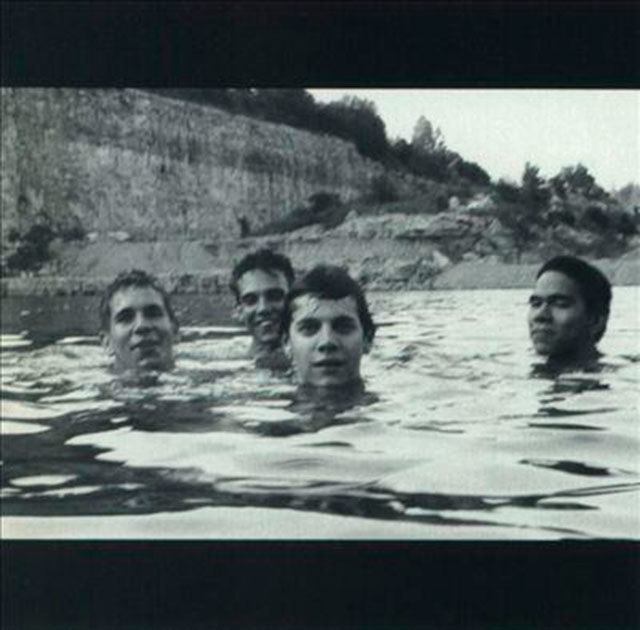By Ron, Everett Public Library staff
Post-rock.
Let the hyphenated word flow over you like butter melted on a half-cooked flapjack: post-rock.
What in tarnation does it mean? The term elicits visions of a doctoral thesis with footnotes and a sports coat with patched elbows. A man in thick glasses and a pointy beard explains, in multi-syllabic folderol, the relationship of epistemology and horror punk while Abba plays endlessly through unseen speakers. Meanwhile, in a nearby room, banjos and mandolins attempt to tune.
But in reality it’s not that complicated. First of all, it’s important to know that there’s not agreement on what is meant by post-rock. The music tends to emulate a soundtrack (and, as it turns out, music by post-rock bands is often used in soundtracks) and is frequently free of lyrics, although a voice might be used as another instrument (i.e. singing without words). The music is generally minimalist, highly repetitive, changing slowly and exhibiting extremes in dynamics to create different moods/emotions. Unlike most soundtrack music, post-rock is performed on typical rock and roll instruments.
Caveat: This is not a genre I frequent. In fact, it is new to me. And it’s not a favorite I must say, but still worth exposing the huddled masses to (whoops, ended the sentence a preposition with). Please, do not attempt to review these bands at home, but listen to them from a safe distance and draw your own conclusions.
Slint — Spiderland (1991) is considered by some to be one of the most important albums ever. The band has performed on and off since 1986, but have not released a recording since Spiderland. Their music is sludgy and ponderous, with many moods and tempos coexisting within a single song. It’s hard-edged, hard rock, even metallic. Vocals are used, although at times they are too quiet to clearly hear.
Swans — Not a band that easily fits within a single label, Swans’ experimental music exhibits many of the characteristics of post-rock. The Seer (2012) is almost operatic in scope. Drama and emotion are created subtly rather than with sweeping dynamic changes. Some tracks include singing and lyrics in a traditional song form, while others challenge the listener to find minute variations hidden in extreme repetition. And yet other bits are similar to avant-garde classical music, featuring shimmering drones filled with ethereal timbre shifts. A beautiful, if not straightforward, listen.
Godspeed You! Black Emperor — First of all, this could be my favorite band name of all time. But more relevantly, out of the groups I’ve explored for this post, Godspeed You! Black Emperor (it feels so good just to type the name!) strikes me as the most talented. Their music is slow-moving with lots of little stuff going on at any given moment, hard-edged and passionate. Unlike most post-rock musicians, band members are politically active. In fact, this lot is often referred to as anarchists, though they do not verify this claim. I’d give them a 12.
Explosions in the Sky — Explosions (as I’ve decided to call them) exemplify the epitome of post-rock as soundtrack. In fact, many of their songs have been used in movies and television. Almost exclusively instrumental, their music drifts along slowly, hitting emotional highs and lows with a vengeance. Dynamic extremes and more dynamic extremes are used to communicate these different moods, as well as to affect musical movement.
Tortoise — Perhaps the most popular of the post-rock bands, Tortoise’s music is very different from the groups mentioned above. Their 2016 album, The Catastrophist, is not so much a soundtrack as it is instrumental rock songs. The album relies heavily on synthesizers and does include some vocals. Fans of mainstream rock music could easily get a groove on to the post-rock sounds of … Tortoise!
And this barely scratches the surface. Kaada, Mogwai, Steroelab, Pelican and Sigur Rós all are worth checking out for their varying interpretations of post-rock. Aaaand, if you want to take a listen to the classical music that post-rock borrows some tricks from, try Greek composer Iannis Xenakis. Expand your horizons! Or don’t. But do enjoy some good music.
Be sure to visit A Reading Life for more reviews and news of all things happening at the Everett Public Library.
Talk to us
> Give us your news tips.
> Send us a letter to the editor.
> More Herald contact information.

























